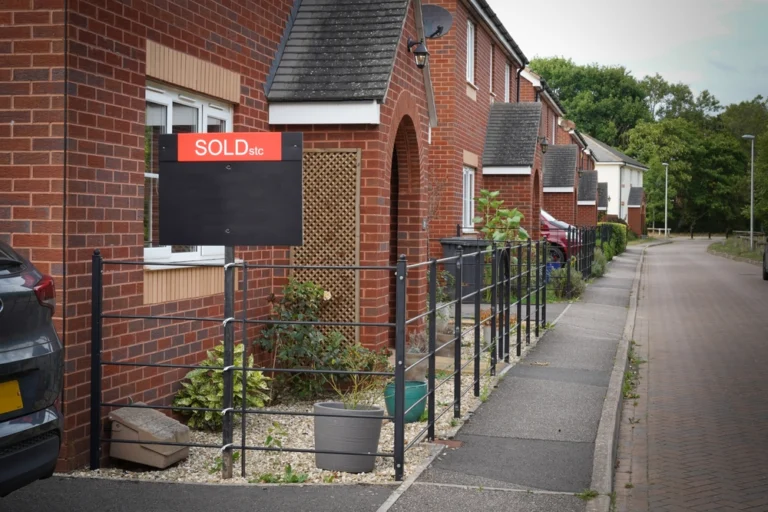Remortgaging your home is a big decision that requires careful thought and consideration. In this guide, we’ll look at the remortgaging process, its pros and cons, and whether it’s the best option for you.
What is remortgaging?
Remortgaging is essentially the process of switching the current mortgage deal on your home to a new one, either with your existing lender or a different one. This can be done for various reasons, such as to secure a better interest rate, release equity from your property, or manage debt.
Access free advice about your mortgage
The remortgaging process
Assess your current mortgage
The first step in remortgaging your home is to evaluate your existing mortgage. You should contact your current lender and make a note of your outstanding balance, interest rate, and any early repayment charges that may apply.
Search for the best deal
You should then shop around and research the various remortgage deals that are available to you. It’s a good idea to enlist the help of an experienced financial advisor who will help you compare different interest rates, fees, and terms to find the best option for your situation.
Complete an agreement in principle
Before you can apply for a new mortgage, you will need to complete an agreement in principle. This is where a lender conducts a preliminary assessment of your income, expenses, and credit history to give you a clear idea of your borrowing capacity and help you narrow down suitable mortgage deals.
Apply for a new mortgage
Once you’re happy with your proposed mortgage deal, it’s time to apply for a new mortgage with your chosen lender. You will need to provide a range of documentation to support your application, including proof of income, expenses, and identification.
Have your property valued
Your lender will require a valuation of your property to assess its current market value. This will determine how much they are willing to lend you for the remortgage.
Review your remortgage offer
The lender will send your offer in the post for you to evaluate. It’s important to make sure the offer suits your personal circumstances and will continue to do so in the long run.
Transfer your mortgage
Once your application is approved and you agree to the offer, a solicitor will help you transfer your mortgage and log your new details with the HM Land Registry. Your new mortgage will be used to pay off the old one.
What remortgaging options are available?
Fixed-rate remortgages
With a fixed-rate remortgage, the interest rate remains the same throughout a fixed period, usually between 2 and 5 years. This stability can provide you with peace of mind, knowing exactly how much your monthly mortgage payments will be. However, it’s important to remember that fixed-rate remortgages often come with higher initial interest rates compared to variable-rate options.
Variable-rate remortgages
A variable-rate remortgage has an interest rate that can fluctuate depending on market conditions. This means that your monthly mortgage payments may go up or down, making it a more unpredictable option. If you anticipate a decrease in interest rates in the future, variable-rate remortgages could potentially reduce your overall mortgage costs.
Tracker remortgages
A tracker remortgage is essentially a variable-rate remortgage that follows a specific benchmark, typically the Bank of England base rate. The interest rate on a tracker-rate remortgage will fluctuate in line with changes to the base rate, offering transparency and flexibility. If the benchmark rate drops, your mortgage payments will also decrease, potentially saving you money.
Related: Your guide to guarantor mortgages
Eligibility criteria for remortgaging
Loan-to-value ratio
When assessing your eligibility for a remortgage, lenders look at the loan-to-value (LTV) ratio. This is the percentage of the property’s value that you are borrowing. Most lenders will typically require you to have a minimum LTV ratio of around 85% to 90%.
Credit score
Your credit score plays a crucial role in determining your eligibility for a remortgage. Lenders will look at your credit history to assess how financially dependable you are. Having a high credit score can increase your chances of receiving approval for a remortgage at a favourable interest rate.
Income and affordability
Lenders will also assess your income and affordability to ensure that you can manage the repayments on your new mortgage. They will typically ask for proof of income to verify that you have a stable source of income. Having a high level of debt relative to your income can make it harder to get approved for a remortgage.
Advantages of remortgaging
Lower interest rates
One of the main reasons homeowners choose to remortgage is to secure a lower interest rate. By switching to a new mortgage deal with a lower rate, you could potentially save a large amount of money over the course of your loan term.
Access to equity
If your property has increased in value since you first took out your mortgage, remortgaging can allow you to access some of this equity and increase your finances.
Debt consolidation
If you have multiple high-interest debts, such as credit cards or personal loans, remortgaging can allow you to consolidate these debts into your mortgage. This can simplify your monthly payments and potentially save you money on interest.
Flexible terms
When you remortgage, you have the opportunity to choose a new mortgage deal that better suits your current financial situation.
Related: Is equity release right for me?
Considerations of remortgaging
Additional fees
Remortgaging often comes with additional fees and charges. These can include arrangement fees, valuation fees, legal fees, and early repayment penalties. It’s essential to factor in these extra costs when considering a remortgage, as they can quickly add up and offset any potential savings.
Impact on credit score
If you miss any payments on your new mortgage, it can damage your credit score and make it challenging to obtain credit in the future.
Long-term commitment
If your circumstances change, such as losing your job or needing to move suddenly, you may be locked into a mortgage that is no longer suitable for your needs.
Related: What happens if I don’t pay my mortgage?
Is remortgaging right for you?
Before deciding to remortgage, it’s essential to consider your current financial situation and goals. Speaking to a financial advisor will help.
Ask yourself: am I nearing the end of my current deal and looking to secure a better rate? Am I looking to lower my monthly payments? Can I afford the initial remortgaging fees?
By assessing your needs and objectives, you can better decide if remortgaging is the right choice for you.







